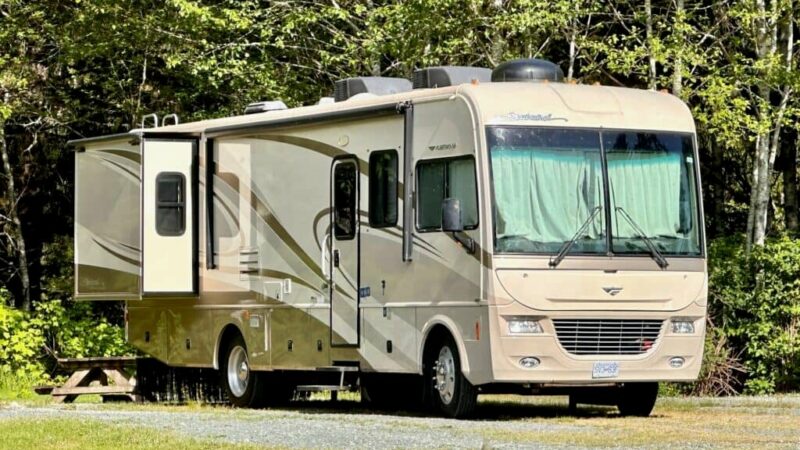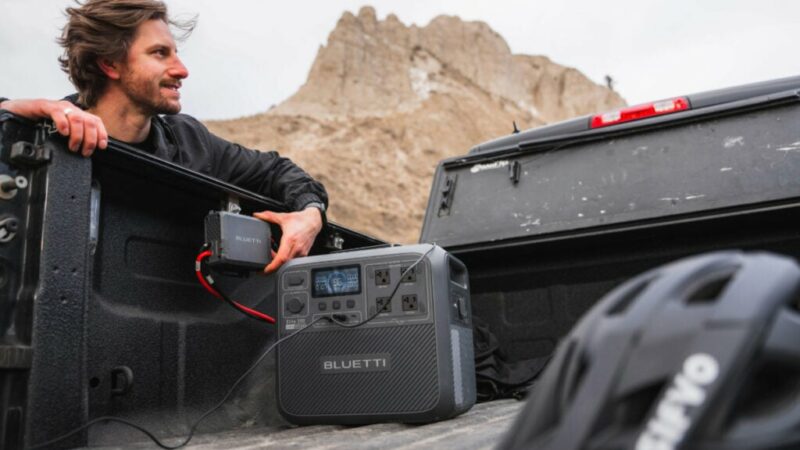Residential Versus RV Fridge: Which Is Better?
Sponsored by Fridge Defend
It’s a Fridge Face Off!
When outfitting your motorhome, fifth-wheel, or travel trailer, one of the pivotal decisions revolves around the choice of refrigerator. This article delves into the pros and cons of selecting a residential fridge versus an RV-specific fridge.
Given the unique challenges and benefits of each, our analysis includes a crucial modification for RV (absorption) fridges that include the option to be powered with propane in addition to other power sources. That modification is the installation of a Fridge Defend safety device. Without this device, the maintenance and safety compliance of RV fridges can be daunting, making residential fridges the default choice for some. Let’s explore both options, keeping in mind the balance shifts significantly with the addition of Fridge Defend for RV refrigerators.
Residential Fridge: Pros and Cons
Residential refrigerators come in a variety of sizes that can fit most RVs, and are typically powered by 110 volts. If you choose to use a residential fridge that includes an ice maker or water service at the door, you must ensure you can run a water line to the appropriate area. You should also ensure that you can easily access that area if winterization is needed or the line needs to be disconnected for winter or during service.
Pros
- Larger Capacity: Residential fridges typically offer more storage space, ideal for long trips or full-time RV living.
- Better Cooling Efficiency: They are more efficient in maintaining consistent temperatures, thanks to their more robust compressors and insulation.
- Familiarity: Operating similarly to household fridges, they require no special knowledge or adjustments for RVers.
- Availability: Replacement parts or service can often be easier to find, given their common use in homes.
Cons
- Power Consumption: Residential models consume more power, potentially an issue without access to continuous electric hookups.
- Size and Weight: Their larger size and heavier weight may pose installation challenges and affect fuel efficiency.
- Requires Inverter: To operate on DC power, an inverter is necessary, adding to the setup’s complexity and cost.
- Warranty: Manufacturers of residential fridge may not honor the warranty for a residential fridge when mounted in an RV.
RV Fridge: Pros and Cons (With Fridge Defend)
Because using an RV refrigerator that includes the option to be powered with propane is inherently less safe than a residential refrigerator, comparisons are such that they include the assumption that the Fridge Defend modification has been made, to put them on an equal footing with regard to safety to that of a residential fridge.
Pros
- Designed for Mobility: RV fridges are built to withstand road vibrations and tilting angles, reducing the risk of malfunctions.
- Flexibility: They can run on multiple power sources (AC, DC, and propane), offering versatility during travel.
- Energy Efficiency: With a Fridge Defend installed, they become more efficient, managing energy use effectively and enhancing safety.
- Safety: The Fridge Defend device mitigates the risks associated with recalls and safety procedures by automatically managing the cooling unit’s operation, making it a safer choice.
Cons
- Maintenance: Even with Fridge Defend, RV fridges may require more maintenance and understanding of their operation compared to residential types. And though we recommend all refrigerator types to be as level as possible during operation, an absorption model is more sensitive to being out of level, so proper positioning is critical to optimum operation.
- Cooling Capacity: They might struggle to cool down as quickly or evenly as residential models, especially in high temperatures, though the Fridge Defend does help with this issue.
- Initial Cost: The cost of purchasing and installing a Fridge Defend device adds to the initial investment.
The Fridge Defend Advantage
The Fridge Defend by ARP is a game-changer for RV refrigeration safety and efficiency. This device automatically controls the cooling unit’s operation to prevent overheating, a common cause of fridge failures and potential safety hazards. With Fridge Defend, RV fridges become comparable in safety and reliability to their residential counterparts, mitigating the primary concern of maintenance and safety compliance.
Conclusion
Choosing between a residential and an RV fridge involves considering the benefits of capacity, efficiency, and familiarity. Then you weight those against considerations of power usage, installation challenges, and safety. The introduction of the Fridge Defend device may tip the scales in favor of RV fridges by enhancing their safety and operational efficiency if the multiple power options are important to you. Whether you opt for the spaciousness and convenience of a residential fridge or the tailored design and adaptability of an RV fridge with Fridge Defend, the right choice depends on your travel style, power availability, and safety priorities.
The post Residential Versus RV Fridge: Which Is Better? appeared first on RV LIFE.
Source: https://rvlife.com/residential-versus-rv-fridge-which-is-better/







